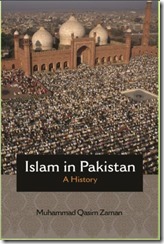The Call for papers for the 14th meeting of the Ritual Year Working Group has just been released! Our next year’s meeting will be held in Riga, 3-6 June 2020.
.Please submit your paper proposals before 30 November 2019, at:
https://ej.uz/RYRIGA2020.
THEME: Commerce and Traditions
The impact of product marketing is visible in everyday life, including a wide range of traditions and festivities, which have lately become highly commercialized. In marketing terms, the values of traditional culture are considered “products” to be branded, marketed and sold. We have all experienced the pre-Christmas gift buying madness and have visited souvenir counters at major historical sites and cultural venues in different countries, each promoting their “brands”. Historically, annual church markets, fairs and pilgrimages attracted people from great distances, providing opportunities to buy, sell, and trade durable goods in addition to food and drink required by pilgrims and merchants. Additional items, such as religious symbols, protective objects, and healing substances were available much as in modern souvenir shops. The means for advertising such objects for sale were, at that time, limited. Today advertising and marketing campaigns appear everywhere. Many people protest against what they perceive as excessive commercialization of their favourite secular or religious festivals.
However, marketing practices attract larger crowds and help to preserve and popularize traditions that might otherwise be lost. Commercialization has made the sale of traditional crafts financially viable, preserving them for future generations. Thus, it is possible for craftspeople to continue practicing their traditional arts and crafts. Not only have the traditional artisans benefited, but religious institutions have witnessed an increase in income, which is needed to maintain the facilities visited by the growing numbers of visitors. New forms of commercialization of rituals with the developing practices of creating new festivals and making them local tourist brands can be seen in many geographical areas.The aim of this conference is to investigate and evaluate the impact of marketing practices on traditions and rituals, and to consider the changes commercialization has brought about ‒ both positive and negative ‒ in the past, as well as in the present. Applicants are encouraged to focus on the following topics:
- the viability of traditions in terms of economics;
- changes in tradition caused by marketing practices;
- the role of marketing in preserving traditional culture;
- the commercialization of state and national holidays;
- the commercialization of religious celebrations;
- the impact of commerce on holy places and pilgrimages;
- the marketing of ritual and magical practices and objects;
- annual fairs and markets past and present;
- the commercialization of the intangible cultural heritage;
- changes in traditional rituals and celebrations due to marketing;
- any other subject related to the ritual year (i.e. to calendric or life cycle celebrations and rituals)
For more information about the theme, costs, submission and conference programme, download the Cfp here.
We are thankful to the Institute of Literature, Folklore and Art (University of Latvia), the Archives of Latvian Folklore and Aigars Lielbardis, for organizing this event.
Let’s meet in Riga next summer!
Irina Stahl,
Researcher, Institute of Sociology, Romanian Academy
Secretary of “The Ritual Year” Working Group,
ritualyear@siefhome.org


